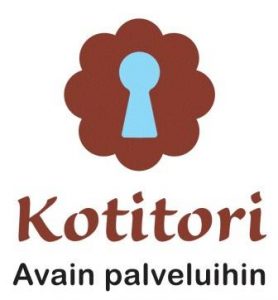An information office for elderly people called Kotitori



An information office for elderly people called Kotitori (Market Place) gathers services from both public and private sources to a one-stop shop. This multiple-provider model provides services for home care and also supports independent living at home. The one-stop shop means information being available via multiple channels: a physical location at the city hall open for visits, a call center to answer calls, and an Internet portal. The Kotitori concept is a new way of organising services supporting aging-in-place as a joint venture between the public and the private sector. It offers the citizens an integrated channel to information and services from both public and private providers. Kotitori service integrator (Mawell Care Ltd and Nordic Healthcare Group) outsources care services from its producer network. The tasks include managing the regular home care services for 300 home care clients and managing the supporting services for the entire municipality (~2600 clients). Supporting services comprise issues such as safety and security, shopping, and short-term home care. Kotitori also manages client guidance and advisory services together with the municipality’s own service units and develops home care processes and operations as well as IT systems together with the municipality and service producers. Kotitori has operated since autumn 2009. New services to be added in September 2015 include wellbeing-technology rental-shop and options e.g. information service to all citizens at all age and temporary homecare for families. The initiative was initially funded by the Finnish Funding Agency for Technology and Innovation (Tekes). The City of Tampere currently covers costs related to the integrator services (needs assessment and advice & service planning) provided by the Kotitori case managers. The service users pay for personal and household services apart from services funded by the municipality under specific criteria.
Main target group: Older people in general
Other target group(s): family members, relatives
Sector(s): Health
Desired outcome for older people:
Meet their basic needs
Name: Palomäki, Virva
Email address: virva.palomaki@tampere.fi
Preferred language(s): Suomi, English